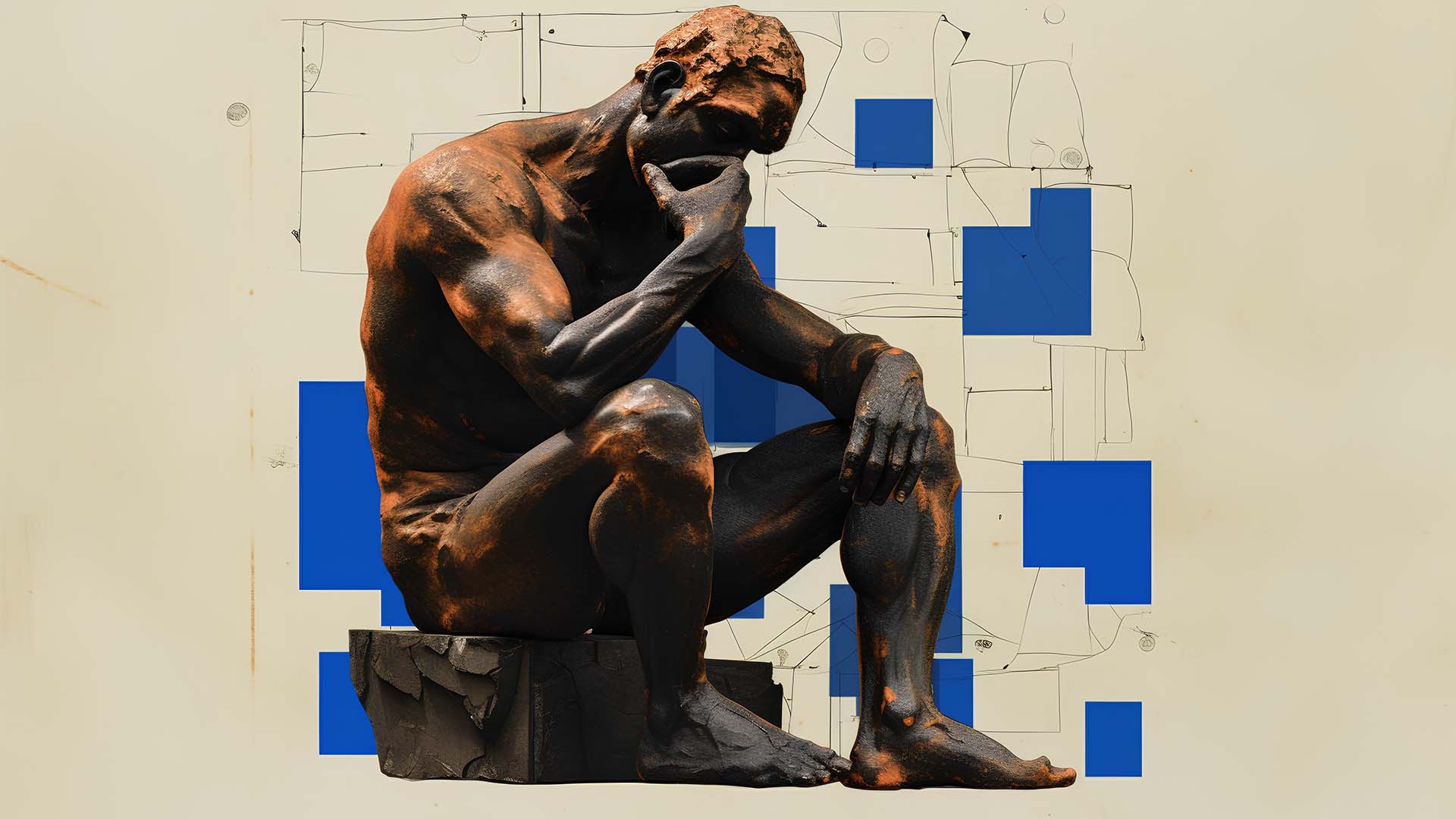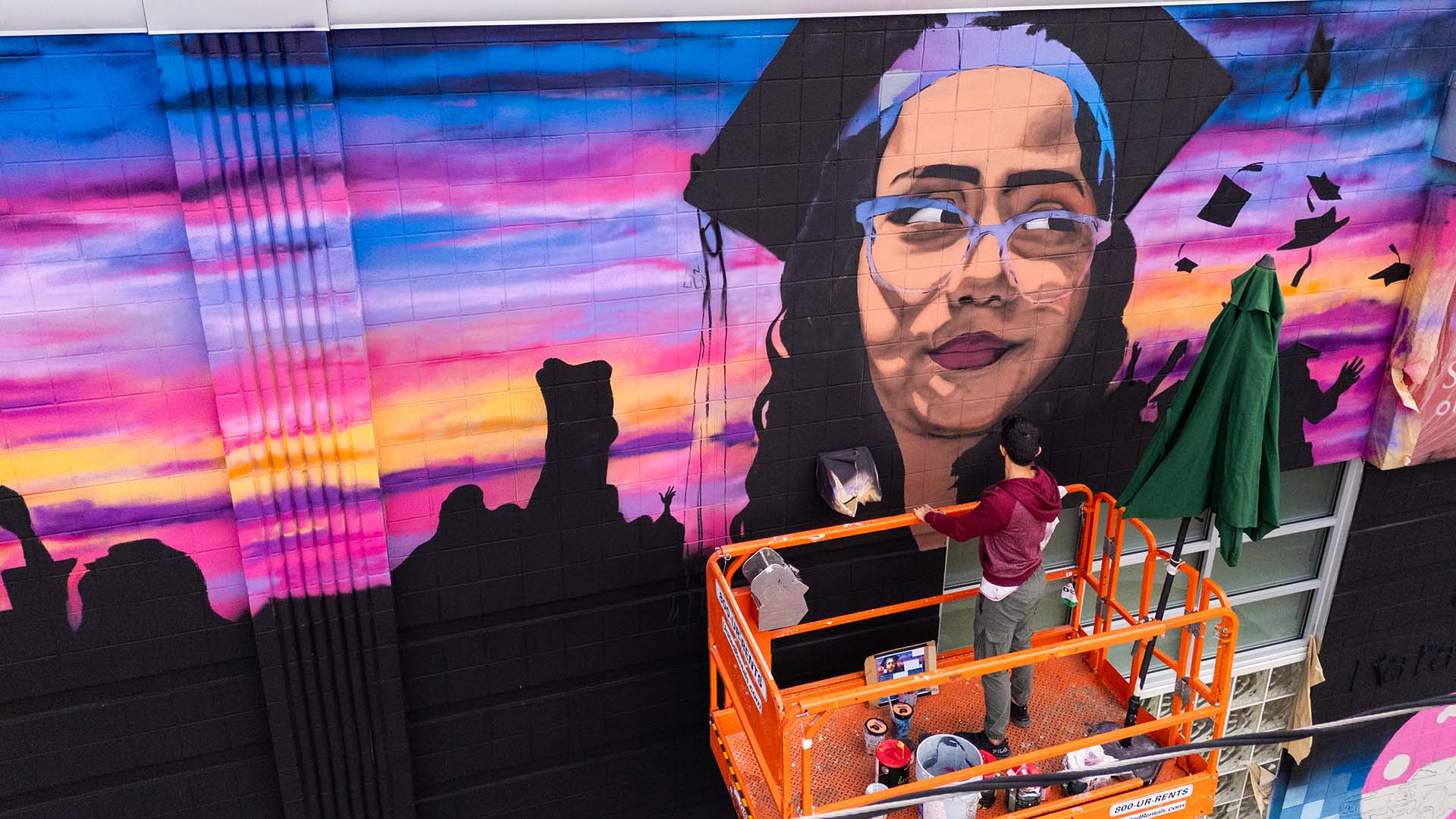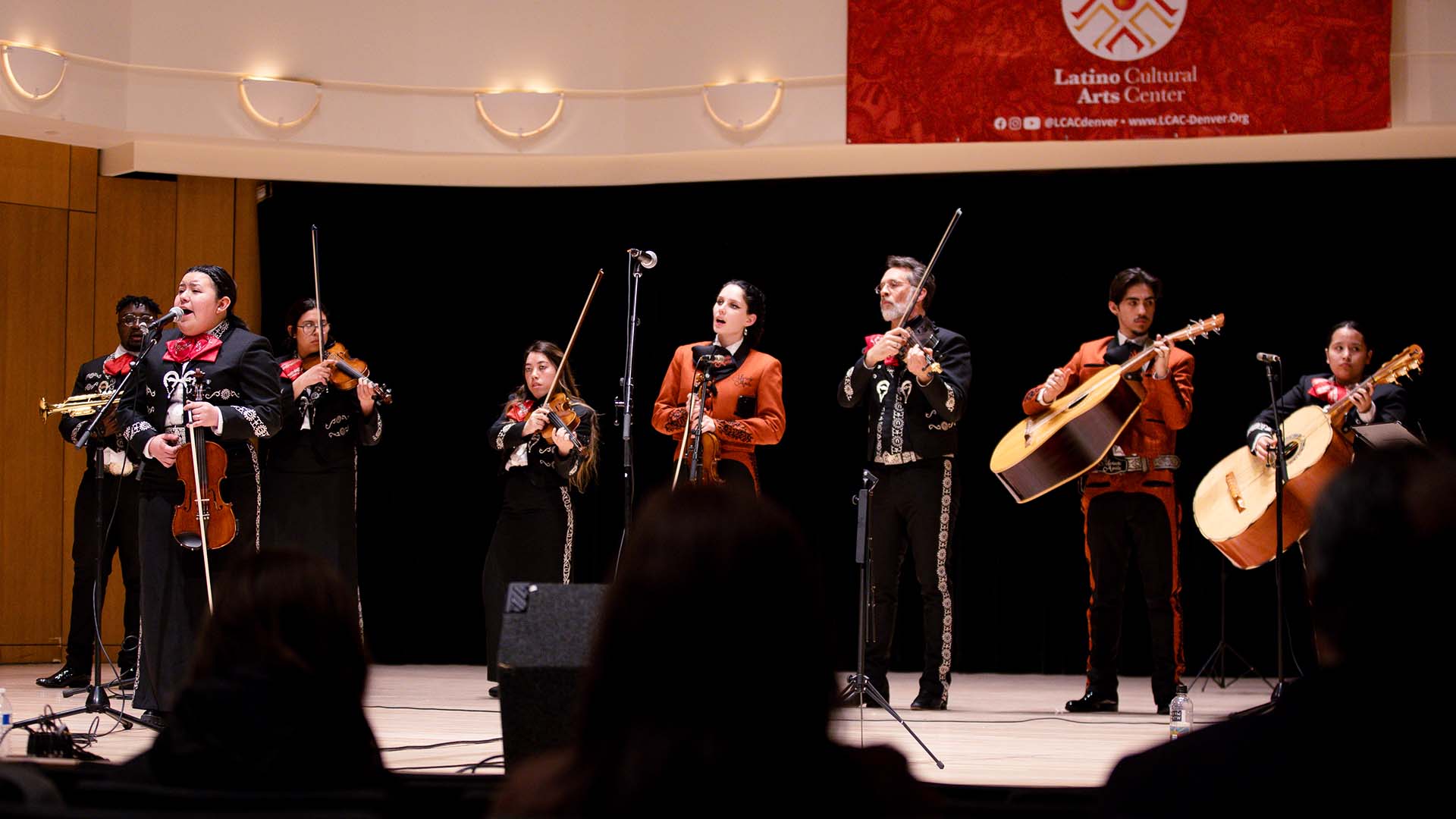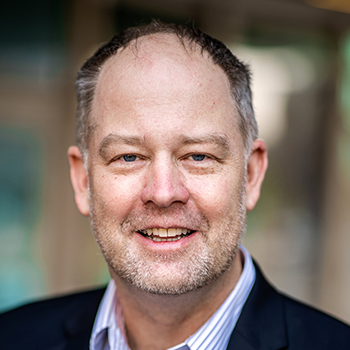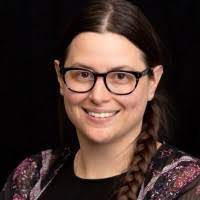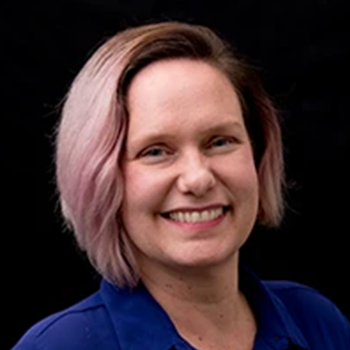25 years of pride
How Colorado’s first on-campus LGBTQ support organization was formed, how it has made a difference and what’s next
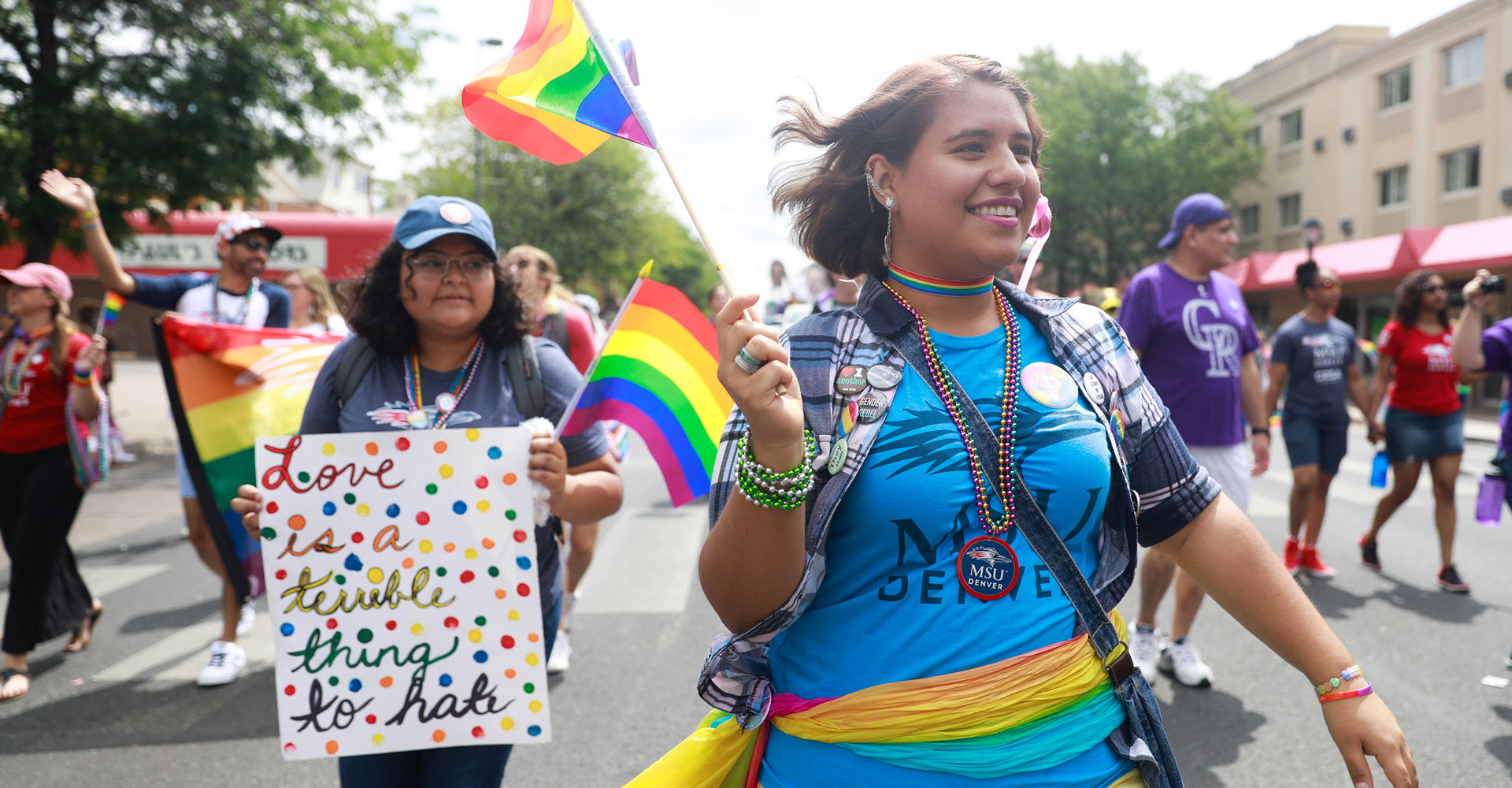
Can you truly have your cake and eat it too? In Colorado, it depends on who’s eating it. In a state that legalized recreational marijuana before same-sex marriage, the conversation has moved from cannabis to cake as an area baker makes headlines for turning away a transgender customer just months after winning a Supreme Court case over refusing to make a wedding cake for a same-sex couple.
It’s been 26 years since Colorado voters passed Amendment 2, preventing municipalities or government entities from enacting civil-rights protections based on sexual orientation. The amendment that earned Colorado the “Hate State” moniker was struck down by the Supreme Court four years later.
That was the backdrop of the establishment of the state’s first on-campus LGBTQ support organization, and one of the first 30 or so nationally, at what is now Metropolitan State University of Denver. About 300 people gathered for a Sept. 13 Silver Soirée at the Tivoli Turnhalle to celebrate the 25 years since the 1993 hire of the first staff member dedicated to gay, lesbian and bisexual student services and all the people who have benefited from the center in the years since.

History grounded in hate
NOTABLE DATES IN LGBTQ STUDENT RESOURCE CENTER HISTORY:October 1991: Student government President Chip Wiman hands down executive order that would withhold funding from any student organization that discriminates on the basis of sexual orientation. February 1992: Metropolitan State College of Denver President Thomas Brewer distributes a letter prohibiting discrimination on the basis of sexual orientation with regard to employment at the college or student activities and organizations, with exemptions for religious organizations and ROTC. April 1992: Student groups including the Auraria Lesbian and Gay Alliance protest exemptions to sexual orientation protections, providing President Brewer a list of demands that include the creation of an “Alternative Lifestyles Office” and GLB issues task force. November 1992: Colorado voters pass Amendment 2, preventing civil rights protections based on sexual orientation. November 1992: A proposal to fund a half-time coordinator of GLB Services is submitted to the Student Affairs Board on behalf of a campus GLB task force; the task force sends a letter to President Brewer asking him to support the position. December 1992: President Brewer approves the funding of a half-time coordinator of GLB Services. February 1993: Sue Anderson is hired as the first coordinator of GLB Services. Fall 1994: Community College of Denver approves funding to support the program. March 1995: University of Colorado Denver students vote down a referendum to fund the program. Fall 1995: UCD Student Government approves a proposal to fund the GLB program, upgrading the half-time coordinator position to three-quarters time and making the program tri-institutional. Fall 1997: “Trans” is added to the title of the Office of GLBT Student Services. 2016: GLBT Student Services is renamed the LGBTQ Student Resource Center.
|
|
If anyone has context for how an LGBTQ office got started and how it’s operated since, it’s Tara Tull, who co-wrote the proposal to create GLB Student Services and just retired as an associate professor in MSU Denver’s Department of Human Services after 28 years at the University.
Between her retirement and her chairing of the center’s Silver Soirée planning, Tull has had plenty of time to reflect on the LGBTQ rights movement on campus and beyond.
MSU Denver was always super-open and friendly to gays and lesbians. There have been a huge number of heterosexual allies in the faculty, staff and leadership positions. It was very welcoming in my experience,” Tull said. “The Health Center had been doing AIDS walk for quite some time before this started – in the ’80s, if you were in the gay community, you were going to funerals all the time.”
In 1992, Tull advised two of the student groups that presented the University president at the time with a list of demands surrounding GLB issues. She served on the task force that wrote the proposal for GLB Services, fought for domestic-partnership benefits for faculty and staff, and personally persuaded speakers including activist Angela Davis to come to the Auraria Campus in spite of Colorado’s “Hate State” reputation.
For Tull, working toward social justice and marriage equality was the easy route. She started her college career in environmental conservation and wanted to save endangered species such as the Panamanian golden frog.
While the frog went extinct in the wild, LGBTQ rights have come a long way.
“There’s been a huge cultural shift between 1993 and now. Public opinion has shifted from the majority being uncomfortable with gay marriage to the majority supporting it, and transgender issues are a bigger piece of the picture now,” Tull said. “It’s been institutionalized now. Early gay pride was revolutionary and in your face, and now we have the Coors Light PrideFest Parade.”
The bake sale based in bias
As a student in the early 1990s, Jody “Lucky” Andrade was a founding member of MSU Denver’s Feminist Alliance, a participant on the University’s GLB task force and the first paid director of the Anti-Violence Project housed in the GLBT Community Center of Colorado.
Andrade, whose career has taken her to a U.S. senator’s office, a governor’s office, a queer performance-art cabaret and now a rural hospital in New Mexico, made local news in Denver when she hosted a Feminist Bake Sale with variable pricing based on the identity of the consumer. White cisgender males paid the highest prices, based on demographic earning power listed in U.S. Department of Labor statistics.
“If I remember correctly, the last item said something like ‘African-American woman in a wheelchair – we’ll give you a free cookie and a quarter.’ The bake sale got a small mention in the Denver Post,” Andrade said.
For her work with the Anti-Violence Project, Andrade found an even bigger platform. The AVP tracked reports of hate crimes and provided services to victims and was inundated during the fight over Amendment 2, which went well beyond the ballot box.
“It was nuts. Suddenly, a group of self-taught activists and volunteers were responding to interview requests from the likes of (ABC News anchor) Sam Donaldson and the BBC,” Andrade said. “Congresswoman Pat Schroeder’s Denver-based press secretary offered to walk me through how to handle myself during a press conference.
“Talk about learning how to fly a plane in mid-air.”
Five offices, four weddings and three schools

Karen Bensen has more than one 25th anniversary to celebrate this year. August marked a quarter-century since Bensen, the LGBTQ Student Resource Center’s longest-serving director, first married her partner Cindy.
That’s right, “first married.”
Bensen has married the same person four times: once “for real,” once after it became legal in Colorado and twice in public ceremonies on the Auraria Campus as part of Bensen’s advocacy for same-sex marriage. You could say she was fully invested in the job.
When Bensen, now an associate clinical professor in the Graduate School of Social Work at the University of Denver, took the job leading what was then GLB Student Services in 1994, she was a recent graduate of the same school at DU, finding her way just as the students she served were.
“I teach a course called Power, Privilege and Oppression from a Critical Multicultural Perspective. As I teach it, I’m learning some more of the theory that I was doing but didn’t really have a name for it back then,” Bensen said. “I knew how important it was to empower groups of people who were oppressed and find their strength.
“I didn’t really have a roadmap. I knew that it was my job to work with students who came to me.”
She could’ve used a map just to find the five office spaces she occupied in her 11 years on campus, starting in an office small enough that she and her work-study student shared a desk. But no matter where she was, students found her. Even before the center became tri-institutional – MSU Denver funded the program in 1993, while Community College of Denver and University of Colorado Denver joined in 1994 and 1995, respectively – students from all three schools came knocking on Bensen’s door, and she never turned anyone away.
One of the highlights of her tenure was giving students a voice through a speakers bureau. Bensen coached students to give guest lectures about their personal stories, often in sociology, psychology or human-services classrooms.
“Figuring out how they wanted to tell their stories was really empowering. To actually stand up in front of a class to tell their stories would transform them. That was often a turning point for students,” Bensen said. “They would start to really engage and learn how to use that newfound empowerment and turn it into some action on campus.”

A veteran of LGBTQ issues
Coast Guard veteran. Undercover narcotics agent. Vegan chef. Massage therapist. 2018 Social Worker of the Year for the state of California.
Zander Keig has held many titles. That last one that came with professional recognition in the country’s most populous state after two decades of transgender advocacy, which includes chairing the National Committee for LGBT Issues, serving as a board member for the Transgender American Veterans Association and writing about his life as a transgender man in The Washington Post.
That advocacy started in earnest while Keig was a student at MSU Denver. He started working for GLBT Student Services around the time the “T” was added for “trans.” As outreach coordinator, he coordinated the Safe Zone Project, GLBT Awareness Month activities and the speakers bureau. For his work on the latter, he was awarded the Colorado Gay and Lesbian Chamber of Commerce Professional Business Woman of the Year.
He was on campus when GLBT Student Services organized a vigil after University of Wyoming student Matthew Shepard was brutally murdered and died in a Fort Collins hospital; Shepard’s name would be added to federal hate-crime legislation in 2009.
Keig also co-founded the Auraria Queer Alliance, which successfully lobbied to have the student health-insurance plan cover domestic partners. For his many efforts on campus, he was named a “Student to Watch” and given the “Giraffe Award (for sticking one’s neck out for others).” Since graduating, he has been honored with the Alum of the Year Award for Work Ethic and Distinguished Alumnus of the Year recognition for 1990s grads.
As a former lesbian feminist who has worked predominantly with male veterans and transgender U.S. military service members, Keig considers his past work with homeless veterans as instrumental in his current work.
“My increased empathy toward men grew out of my transition from female to male and my experience serving homeless men as a Veterans Health Administration social worker. I realized that much of what I had been told about men, mostly by women, lacked full understanding of the lived lives of men: their struggles, burdens, strengths and responsibilities. I believe I have become a much more compassionate man through my direct interactions with men,” Keig said.

Railing against repression
Who would you call to bail you out of jail?
Erin Durban-Albrecht, who was thrown out of her home in high school when her mother learned she was a lesbian, was bailed out by a faculty member after being arrested for blocking Denver’s Columbus Day Parade over the explorer’s treatment of indigenous peoples.
The 2006 graduate created her own degree in individualized studies (International Politics: Race, Class, Gender and Liberation) and is an assistant professor at the University of Minnesota–Twin Cities. She’s made a career of activist scholarship, shining a spotlight on state-sponsored repression in the form of imperialism, immigrant detention, Islamophobia and racism.
“What surprises me is that very few people think of any of these things as ‘gay issues,’ so I have focused a lot of my education efforts on making connections for people between state repression of different groups of people,” Durban-Albrecht said.
As a student, Durban-Albrecht provided the Auraria Campus with a public gender education when she ran for Homecoming king, nominated by co-workers at GLBT Student Services.
“It made some people really mad that someone who was designated female at birth could be in the running for Homecoming king, and conservative students leaked the story to the press. I was so nervous by the time I went out on the court with the other people in the running – I thought it would be a scene like in ‘Carrie,’” Durban-Albrecht said. “But it came and went, and no one dropped a bucket of pig’s blood on me.
“A lot of people found me afterward to say that the whole thing made them start thinking differently about gender. The University changed the categories from ‘queen’ and ‘king’ to ‘Homecoming royalty’ the following year.”

Intersectional inclusion
Kaiba Linthicum showed up at the LGBTQ Student Resource Center looking for a place to belong. Now, the psychology and history major with plans to teach secondary social studies is helping others belong too.
“I was just someone who came in and was trying to find my community when I was first coming out,” Linthicum said.
He credits director Steve Willich with making him feel comfortable on campus and then pushing him out of his comfort zone to help others, something Willich has been doing for students since 2010.
During his tenure, Willich has seen GLBT Student Services become a full-fledged LGBTQ Student Resource Center with expanded programming, a bigger budget, an office remodel and the addition of an assistant director.
In addition to doing more, the center is doing things differently, too.
The LGBTQ Student Resource Center was one of several centers and programs consolidated under MSU Denver’s Center for Student Equity and Achievement in 2018 as the University recognizes the intersectional identities of its students. The center is co-hosting an “Undocuqueer” event with MSU Denver’s Immigrant Services in January and has plans for an interfaith LGBTQ conference and an event centered on LGBTQ identity and ability in the spring as well.
Twenty-five years after the center was formed, the Auraria Campus has changed too, with more changes in the works. Family restrooms are being labeled as gender-inclusive restrooms, while plans are moving forward for a gender-inclusive locker room in the Physical Education/Events Center building.
MSU Denver is using technology to better meet LGBTQ needs too: Willich is advocating for the incorporation of preferred personal pronouns into University systems so that faculty can print out class rosters with the appropriate pronouns and not out transgender or gender-nonconforming students in front of their peers.
“We’ve had a change in focus. We’ve spent a lot of years raising awareness, and now we’re more responsive to student needs,” Willich said.
After 25 years, students need the LGBTQ Student Resource Center as much as ever.

